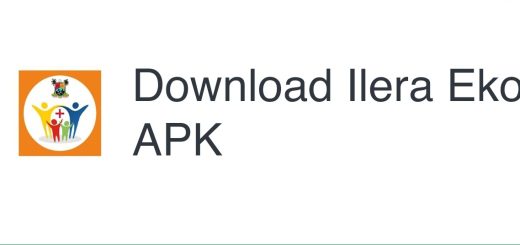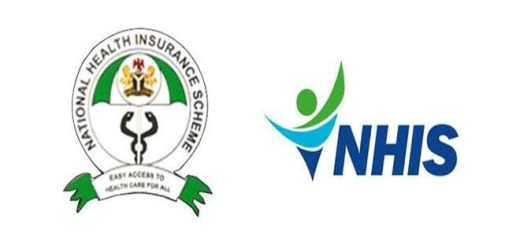Health Insurance Policy in Nigeria: All You Need Know (2024)
Do you wonder what health insurance options are available in Nigeria and how you can get covered?
Health insurance provides financial protection and access to healthcare services for individuals and families.
However, in Nigeria, only about 5% of the population currently has health insurance. The government established the National Health Insurance Scheme (NHIS) to make quality and affordable healthcare accessible through insurance plans. But getting insured still remains challenging for many Nigerians.
This article explains the key things you need to know about health insurance in Nigeria – the main providers and plans, benefits of getting covered, eligibility criteria, and how to obtain health insurance.
HEALTH INSURANCE POLICY IN NIGERIA: ALL YOU NEED TO KNOW
Health insurance provides financial protection and affordable access to quality healthcare for individuals and families. In Nigeria, health insurance coverage is still very low, with only about 5% of Nigerians covered under any health insurance plan. However, in efforts to achieve Universal Health Coverage, the Nigerian government established the National Health Insurance Scheme (NHIS) and has implemented some forms of health insurance at the federal and state levels.
This following paragraphs provides an overview of health insurance in Nigeria, the key health insurance providers, the plans they offer, benefits of enrolling in health insurance, eligibility criteria, and how to obtain cover.
OVERVIEW OF HEALTH INSURANCE IN NIGERIA
The National Health Insurance Scheme (NHIS) is the body established by federal law in 1999 to regulate, supervise and ensure access to quality and affordable healthcare for all Nigerians.
The NHIS aims to provide easy access to healthcare for employees in the formal sector through their employers registering them under the formal sector social health insurance program.
This program makes health insurance mandatory for all federal government employees and allows private organizations with 10 or more employees to enroll their staff voluntarily.
As of 2020, only about 5 million Nigerians representing 2.5% of the population were actively enrolled under the NHIS formal sector program.
Some state governments have also set up health insurance schemes targeted at people in the informal sector and rural dwellers. Examples include the Lagos State Health Management Agency, Oyo State Health Insurance Agency, Delta State Contributory Health Scheme and Kwara State Health Insurance. However, coverage still remains very limited.
Health insurance is expected to continue expanding to reach more Nigerians in all sectors of the economy in the coming years. This can only work with increasing investments in healthcare infrastructure and focus on achieving Universal Health Coverage in Nigeria.
KEY HEALTH INSURANCE PROVIDERS IN NIGERIA
There are a lot of players in the country’s health insurance industry. The major health insurance providers in Nigeria include:
- National Health Insurance Scheme (NHIS): The main regulatory body that accredits and supervises HMOs as well as enrolls federal government employees in health plans.
- Health Maintenance Organizations (HMOs): These are the licensed intermediaries accredited by NHIS to manage health plans by registering healthcare providers, marketing plans and managing member care. Examples include Hygeia HMO, Avon HMO, AIICO Multishield HMO.
- State Health Insurance Schemes: Some states run their own health insurance programs targeted at civil servants, informal sector and underserved residents. Examples are Lagos State Health Scheme and Delta State Contributory Health Scheme.
- Private Health Insurance Companies: These offer supplementary commercial health insurance plans to individuals, families and organizations. Examples include AXA Mansard, African Alliance, Healthcare International and Cigna Nigeria.
HEALTH INSURANCE PLANS IN NIGERIA
There are lots of them, but the common health insurance plans provided in Nigeria include:
- NHIS Formal Sector Program: Group coverage for employees of the federal government and private companies with 10+ employees registered under an accredited HMO.
- State Health Insurance Schemes: This plan varies by state but provide subsidized coverage options for civil servants, informal sector workers and vulnerable groups based on income levels.
- Commercial Health Plans by HMOs & Insurers: Offer private medical insurance options like inpatient, outpatient, maternity, critical illness cover, personal accident, etc.
- Community-Based Health Insurance: Micro health plans managed by community associations and local organisations targeting rural dwellers and small informal sector groups like market women with flexible premiums.
BENEFITS OF HEALTH INSURANCE COVER
The key benefits of obtaining health insurance in Nigeria include:
- Financial protection: Reduce out-of-pocket spend on healthcare and avoid catastrophic expenses in event of critical illness
- Access to quality care: Ability to access services at accredited hospitals and clinics; enrolled under an HMO
- Preventive care and wellness services access
- Covers range of services including consultations, diagnoses, prescriptions, surgeries, antenatal care, emergencies, etc. Depending on plan type and limits
- Free annual general medical check
- Access to health education programs
- Funeral expenses support for families of deceased (under some plans)
With these many benefits, I think you should consider getting the health insurance package. The following paragraph will explain how to get the health insurance plan in the country.
HOW TO OBTAIN HEALTH COVER IN NIGERIA
A lot of people have always been asking the question of ‘how to obtain health insurance in Nigeria?
Let’s shed some light on this issue:
Step 1: Identify the providers and plans options you qualify for: NHIS, State schemes commercial plans
Step 2: You have to review the plans terms including providers network, premiums, limits etc. To pick an appropriate option that aligns with your income & healthcare needs
Step 3: Obtain plan application forms & submit required documents
Step 4: Complete medical underwriting if required
Step 5: Make registration payments for family or individual policy based on the premium rates and policy tenure
Step 6: Activate health plan membership and access accredited hospitals/clinics when requiring medical care by presenting proof of ID & insurance cover.
That’s it! You can now enjoy the benefits of the health insurance cover!
CONCLUSION
Now you know the major health insurance providers in Nigeria like NHIS and state schemes, the types of plans offered, the benefits of getting coverage and who is eligible.
It’s very important to know the available options, costs and how to obtain insurance in Nigeria. This will help you and your family enroll into suitable health plans that guarantee financial protection and access to care.


